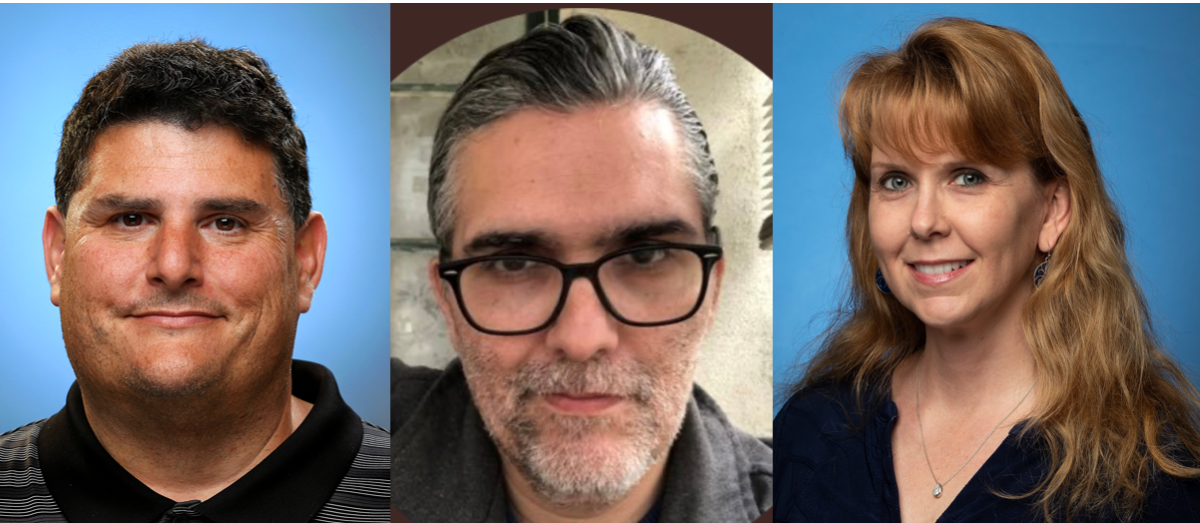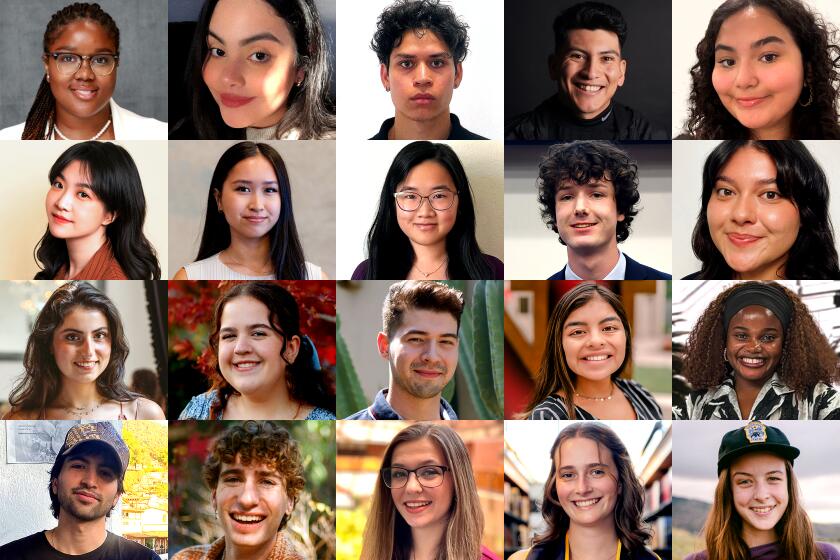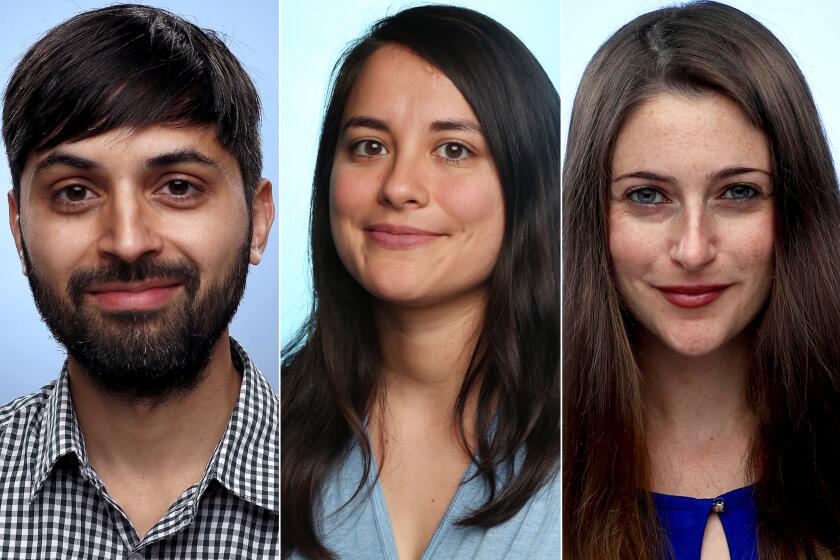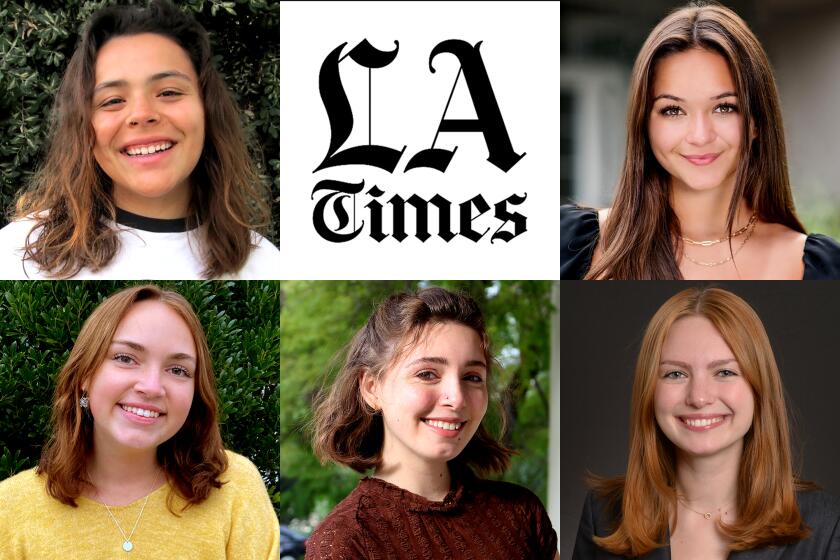L.A. Times announces newsroom reorganization and promotions

The following announcement was sent on behalf of Executive Editor Kevin Merida:
I am pleased to announce the beginnings of a newsroom reorganization that will sharpen our focus on news and topical enterprise, create new opportunities for our staff and lead to more experimental storytelling and engagement with readers.
The starting point is strengthening how we organize, program, package and deliver our daily coverage to digital audiences. Weâll become more agile and energetic day to day in pursuit of stories the L.A. Times should own and more inventive in how we tell those stories. Our guiding principles are to be fast, right and good. Weâll also become more disciplined in our story choices and more intentional in tapping the talents of the entire newsroom.
To that end, Shelby Grad, who has served as California and Metro editor since 2014, takes on a new role as deputy managing editor for news, supervising our daily report on all platforms. He will be responsible for driving coverage across departments, ensuring we produce what we need to produce, when we need to produce it, and that we aggressively extend coverage â where essential â beyond the daily cycle into off-the-news investigations and enterprise. He is joined in this effort by B.J. Terhune, who becomes assistant managing editor for news.
Hector Becerra becomes deputy managing editor for California and Metro, taking the helm of our largest staff with a charge of refining its mission and mining for new coverage gold. He will oversee the coalition of beats, teams and distinctive voices that comprise our signature local and statewide coverage â from the 88 cities in greater L.A. to our evolving approach to communities of color, investigative journalism and the narratives that define the contours of the most populous state in America.
We are marshaling a broad collection of talent â akin to the Avengers â to work with Grad and Terhune in driving and curating daily coverage and engaging in the relevant conversations audiences are having off of our platforms. This group includes Samantha Melbourneweaver and the Audience team; Lora Victorio and the News Desk; A1 editor Mary Ann Meek and weekend editor Ashley Dunn; Loree Matsui and the Multiplatform Editing Desk; and Matt Ballinger and the Utility Journalism team. They will report to Grad and work collaboratively with departments across the newsroom as we become more focused on being accountable every day to our readers and their expectations of The Times, and more urgent about growing that audience. The group will work collaboratively to tackle news, program our platforms, provide the best runways for our most important projects and foster collaboration.
To help accelerate and enliven news coverage, we will create a âFast Break Desk,â combining our extraordinary L.A. Now and Entertainment News teams and adding an eclectic array of journalists to this group so that we can be swift, smart and even more robust on breaking news and trending topics throughout the day, evening and weekend. Terhune will oversee the Fast Break Desk, and we will be posting jobs and making further assignments to this unit in the coming days and weeks.
Our readers deserve a daily report that is consistently timely, lively and comprehensive, with the authority and high quality The Times is known for. It will take the entire staff for us to accomplish our goals, and contributing to news, feature and real-time enterprise coverage when called upon will be a newsroom-wide priority. In the coming weeks and months, we will announce other changes to our newsroom structure. In addition to the managing editor position we are actively recruiting for, we will create other leadership positions and enlist more of our journalists in newsroom decision-making. We will devote resources to new and expanded coverage areas and to experiments. Weâll increasingly organize our staff around core topics and growth opportunities, rather than aligning with the structure of traditional newspaper sections. And weâll prioritize diversity and inclusion in all that we do.
In his new role, Grad will have the authority to commission and compel journalism that we must have to produce a vibrant daily report. Grad started with The Times in 1993 as a community stringer. He has worked since then as a reporter and editor and has distinguished himself running coverage of earthquakes; rainstorms; droughts; wildfires; public corruption, including the Pulitzer-winning Bell and USC scandals; celebrity misbehavior; and all manner of stories the L.A. Times has broken or chased over the years. During his tenure as city editor, he helped launch L.A. Now, an early and enduring success in the paperâs digital efforts, and has championed bringing the best in local news to our readers wherever they look for it â from tweets to A1.
Grad will report to me until we hire a new managing editor with oversight of our news operation.
Terhune worked as a manager and editor at newspapers including the Atlanta Journal-Constitution and Orlando Sentinel before joining The Times in 2015. She started as an online copy editor on the morning desk and in 2018 joined Metro as the morning editor, launching the dayâs California coverage, assigning stories and coordinating breaking news. For the past two years, sheâs served as a deputy editor in Metro, overseeing breaking news and daily coverage, the L.A. Now morning team and night and weekend operations. During that period, she marshaled coverage of the Saugus school shooting; earthquakes and wildfires; the helicopter crash that killed Kobe Bryant, his daughter Gianna and seven others; and shared in the 2016 Pulitzer Prize for breaking news coverage of the San Bernardino terrorist attack.
Terhune will report to Grad as his deputy, helping to coordinate the coverage workflow of the day and shaping the Fast Break Desk.
Becerra began his journalism career in The Times newsroom in 1999. For 15 years, he worked as a general assignment reporter, covering the city with his trademark empathy and skepticism. He wrote memorable features on a range of subjects, including the tough life of strawberry pickers on the central coast and the last Jewish person in Boyle Heights. He covered Latino cultural trends, immigration and â the constant on any City Desk â crime. He investigated corruption in the cities of Vernon, Cudahy and Lynwood and was part of the team that won the Pulitzer Prize for Public Service for its reporting on the city of Bell. In 2015, he became an editor, leading coverage of everything from immigration and neighborhoods to beefing up our presence in rural California. He was promoted to city editor in 2017, running a team of reporters, organizing daily newsgathering and helping to generate ambitious and unique enterprise coverage.
Becerra will report to Managing Editor Scott Kraft and will work with me in defining where to take our coverage of L.A. and California next.



